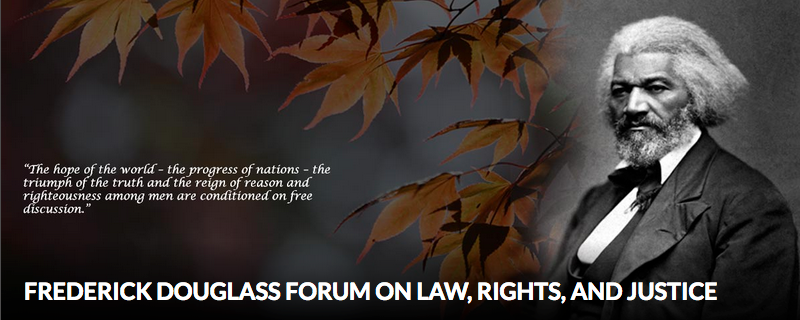
Frederick Douglass Forum Lecture Series
Title
Power Concedes Nothing without a Demand: Frederick Douglass on Emancipation
Document Type
Video File
Duration
1 hour 17 minutes 8 seconds
Publication Date
3-3-2016
Disciplines
American Politics | Comparative Politics | Political Theory | United States History
Abstract
In this filmed lecture, Dr. Nicholas Buccola (associate professor of political science at Linfield College) offers remarks to celebrate the opening of the exhibit Changing America: The Emancipation Proclamation, 1863 and the March on Washington, 1963 at the Jereld R. Nicholson Library, Linfield College. The exhibit (presented by the Smithsonian's National Museum of African American History and Culture and the National Museum of American History in collaboration with the American Library Association Public Programs Office, and made possible by the National Endowment for the Humanities) commemorates two events, linked together in a larger story of freedom and the American experience, that changed the course of the nation.
In his lecture, Buccola examines Frederick Douglass's views of emancipation by comparing his ideas with several of his contemporaries, including Abraham Lincoln, William Lloyd Garrison, Elizabeth Cady Stanton, and Stephen A. Douglas. Buccola's focus is on two questions related to emancipation: What is emancipation? What are the legitimate means that may be used in pursuit of emancipation?
Recommended Citation
Buccola, Nicholas, "Power Concedes Nothing without a Demand: Frederick Douglass on Emancipation" (2016). Frederick Douglass Forum Lecture Series. Video File. Submission 16.
https://digitalcommons.linfield.edu/douglass/16


Comments
Sponsored by the Linfield College Political Science Department, the Frederick Douglass Forum on Law, Rights, and Justice, the Elliot Alexander Fund, the Dean's Speaker Fund, and the Jereld R. Nicholson Library.